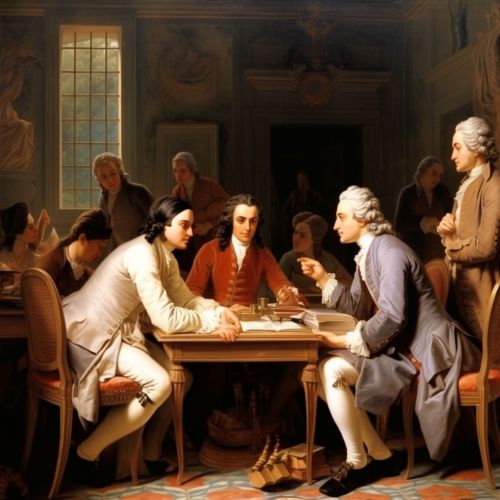Counter-Enlightenment
Introduction
The Counter-Enlightenment was a cultural and intellectual movement that emerged in the late 18th and early 19th centuries, in direct opposition to the principles and ideals of the Enlightenment era. This period saw a resurgence of traditional beliefs and values, with a focus on faith, authority, and tradition, in contrast to the Enlightenment's emphasis on reason, science, and individualism.


Origins and Development
The Counter-Enlightenment was not a unified or coherent movement, but rather a collection of disparate reactions against the Enlightenment. It emerged primarily in Germany and France, but its influence was felt throughout Europe and beyond. The term "Counter-Enlightenment" was coined by German philosopher Friedrich Nietzsche in the late 19th century, although the movement itself had begun much earlier.
Key Figures
Several key figures played significant roles in the development and propagation of Counter-Enlightenment ideas. These included German philosopher Immanuel Kant, French writer Joseph de Maistre, and English poet Samuel Taylor Coleridge, among others.
Philosophical and Cultural Impact
The Counter-Enlightenment had a profound impact on the philosophical and cultural landscape of the time. It challenged the Enlightenment's faith in reason and progress, and instead emphasized the importance of tradition, authority, and faith. This shift in values had significant implications for the development of philosophy, literature, and the arts.
Criticisms and Controversies
The Counter-Enlightenment has been the subject of much debate and controversy. Critics argue that it represented a regressive and reactionary response to the Enlightenment, while supporters maintain that it offered a necessary corrective to the excesses and shortcomings of Enlightenment thought.
Legacy and Influence
Despite its controversial nature, the Counter-Enlightenment has had a lasting influence on Western thought and culture. Its emphasis on tradition and authority continues to shape our understanding of society and the individual, while its critique of Enlightenment rationalism has informed much of contemporary philosophy and social theory.
